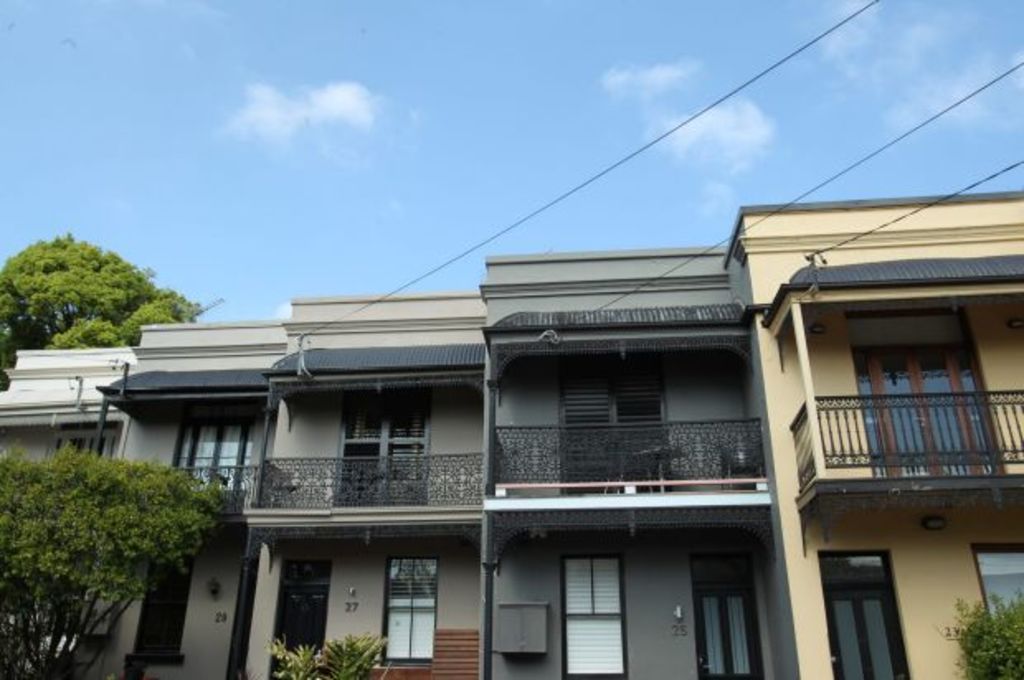New Year's resolutions for the Australian property market, that we will all quietly ignore

How’s 2018 treating you, friends? By now that hopeful first blush of the new year should have been replaced by the sickly pallor of mid-January and that makes this a perfect time to ask: so, how are those New Year’s resolutions going?
Are we all on track to lose 10 kilos, master Cajun cooking, get our finances in order, learn conversational Mandarin and stop cry-drinking ourselves to sleep every night? Or have those ambitious plans dropped off the radar as the pressures of work, family and the collective realisation of our own crippling inadequacies made themselves felt?
Don’t feel bad. January’s a terrible month to make big life changes – just like June, September, May, April, July, November, February, August, December, and March. And especially October.
Also, it’s important to remember that New Year’s resolutions are like corporate mission statements: transparent lies designed to make its subject look less morally empty than clearly is the case.
Sure, you might want to believe that your determination to be more financially prudent or exercise daily is more concrete than the plans for an accountancy firm to proactively embrace dynamic excellence across corporate silos, but the end result is the same for both you and Big Steve’s Supa-Fast Tax Returns and Discount Bait Shack. You’re both going to toddle along and hope for the best, and ignore that increasingly gamey smell wafting from the wall behind you.
So, with all that in mind, what aspirational and meaningless garbage should the national property market pledge to embrace and then quietly ignore in 2018?
Negative gearing and capital gains reform
Sure, there’s been a bit of a flurry of noise about this issue of late, mainly in that the government would appear to have been a little rubbery with the truth regarding the potential effect of Labor’s proposed barely-qualifying-as-milquetoast reforms.
Turns out that Labor’s plan to glacially wind back the loopholes that make housing an onshore tax haven wouldn’t take a “sledgehammer to property prices” after all, according to Treasury documents recovered under a freedom of information request. In fact, such a move wouldn’t appear to decrease property prices so much as reduce the price growth to slightly less cartoonish levels, but it’s still apparently a bridge too far for the government to consider.
And if you’ve been bemoaning the lack of unity in the Liberal Party over the past few years, take heart at the news that NSW premier Gladys Berejiklian fell into lockstep with her federal colleagues by quietly ignoring advice from the Treasury to review negative gearing policies it had determined were driving up house prices.
Related: Five property market trends to expect in 2018
Related: What’s in store for Sydney’s property market?
Related: Labor’s negative gearing policy would have ‘small’ impact
Mandated community housing quotas
Now, to be fair, some developers have instituted low-rent housing into their apartment complexes, and many have even remembered that after getting planning approval and not waited until construction to decide that the community would be better served by those spaces being sold for maximum profit after all.
And the result is that the many thousands of individuals and families finding the private rental market beyond their means can enjoy competing for upwards of dozens of cheaper alternatives. Hey, Demand: here’s your supply-led solution!
After all, it’d be a nice idea to have something like community housing once again, especially since the government’s been busily selling off its existing stock (such as the Sirius apartments in Sydney’s Rocks), but actually regulating that with laws and some sort of checking for compliance would be expensive and boring.
Much better to ask nicely and hope that for-profit companies will enact widespread social justice action at their own expense – after all, they would have made enough money by now, right?
Rental security and tenants rights
A cold wind blew through 2016 and ’17 as reviews of the rights of renters in NSW and Victoria uncovered all sorts of horror stories, from unexplained evictions to egregious rental hikes to month-to-month leases to tenants too terrified to report gaping holes and ankle deep sewerage lest they be kicked out of the only halfway affordable place near work.
And the overwhelming result of these reviews, especially in NSW, was “well, the system seems to be pretty tickety-boo – sorry, what was that about you peasants wanting to put up shelves? In my house? God, next you’ll be wanting to keep your pets!”
So let’s once again take a moment to speak hopefully about the European experience, where long-term leases, regulated rental increases and widespread tenant autonomy is the norm, and then quietly shut up in case our landlords hear us and banish us from our children’s primary school catchment area.
Banishing poor people to the poorly-serviced outer suburbs
Look, it’s important to set achievable goals.
We recommend
We thought you might like
States
Capital Cities
Capital Cities - Rentals
Popular Areas
Allhomes
More







